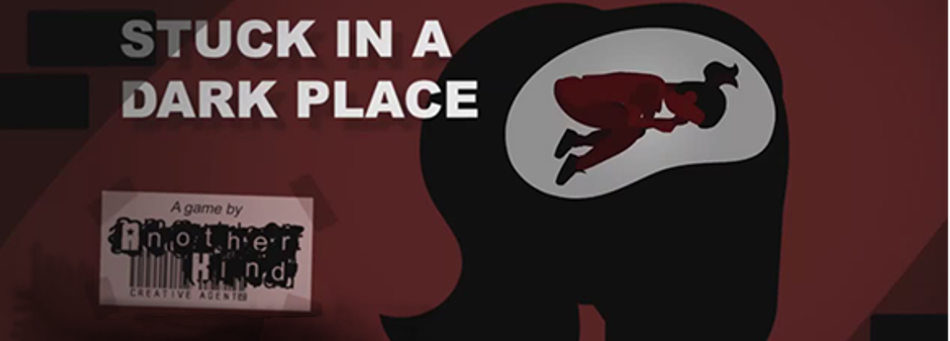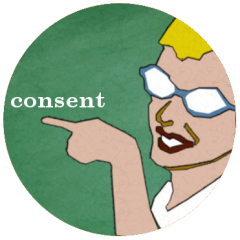Note: This discussion about Stuck in a Dark Place contains spoilers. It also includes some discussions about non-consensual sexual activity. This post has been updated since it was originally published.
I truly feel like games can be a great educational tool that can transcend many boundaries. Often times, games can present a situation much better than verbal storytelling can. With the game Stuck in a Dark Place, you can truly get into the scenes shown to make it a great tool for consent education. The game is great for high schoolers or for talks about sexual consent at work or on college campuses.
The game does contain some disturbing situations though, and you should check with the group you are presenting it to before playing the game in class or having them do so.
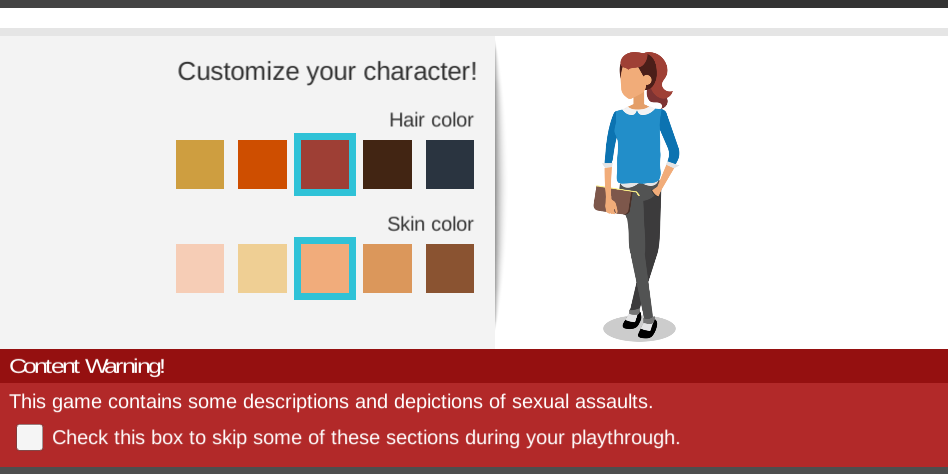
Getting Started With Stuck in a Dark Place
The game has a rather unusual start. First, you design a character by picking their skin and hair color and then you immediately find yourself in jail. You learn that you were a teacher named Chloe who had a relationship with a student and you feel wrongly imprisoned.
Chloe claims that it’s wrong to be in jail when the student consented to their relationship but so many men went free after harassing her. Her cellmate Sonia, decides to help her through her emotionally scarring memories by having her write about them.
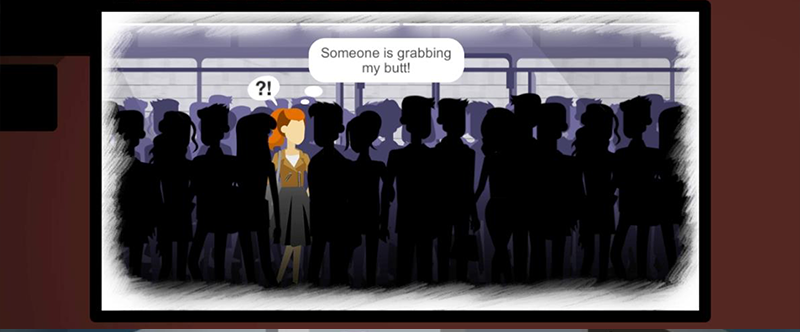
The game consists of eight chapters all covering different, but very real, situations where Chloe is violated in some way. As the story goes along, the situations Chloe recalls become more disturbing and paint a picture of what led her to eventually be imprisoned.
Throughout the story, the game has you play two mini-games to help you etch out the words Chloe is using to convey her letters to the abusers. You will have to search for the right words in a puzzle or unscramble them to fill in the missing blanks.
Game Options
The game options include a setting allowing you to skip some of the more graphic content, in case you feel uncomfortable with some of the serious situations shown.
The game also features a lesson mode. This mode is great if you’re teaching a class about sexual abuse and consent. The mode will let you choose from one of the eight chapters and skip to that section easily. In lesson mode it still has the option to block out some of the more sensitive content in case your class is uncomfortable with the scenes.
Please realize that the entire game should be played in order to understand the context for these individual scenes. The lesson mode should only be used after the entire game has been played.
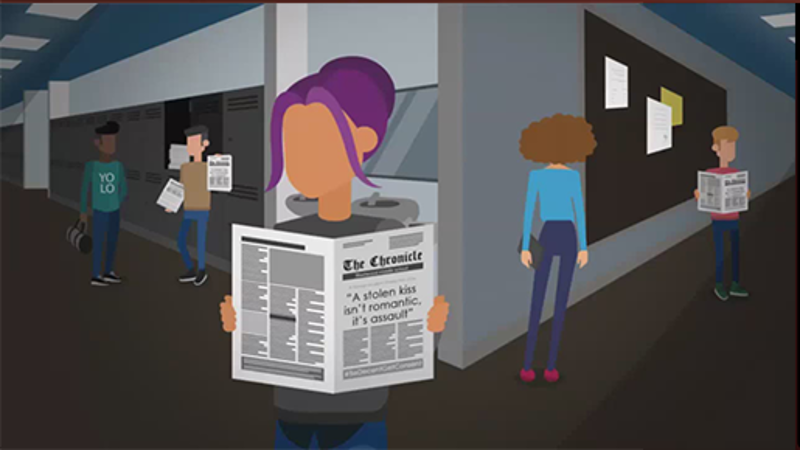
Each chapter has a different scenario that offers a great point for discussion on where a line should be drawn and encourages women (and men!) to speak up against abuse.
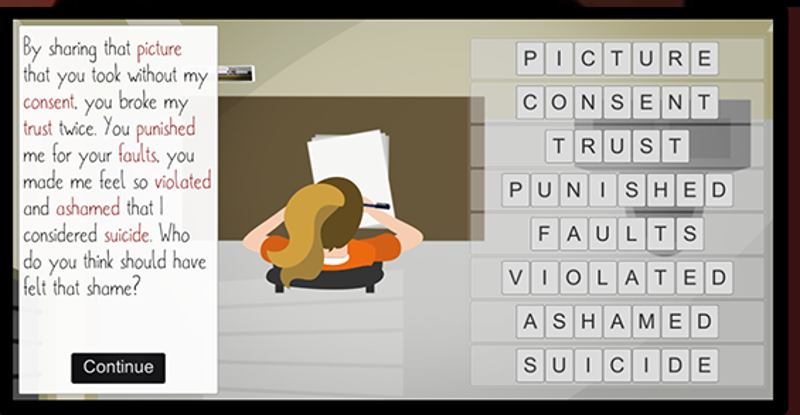
Reoccurring Themes (Sensitive Material Warning)
While sexual abuse is very hard for many women and men to talk about, it’s a talk that has to happen in order for us as people and as a society to progress. I was even able to relate to a few situations in the game personally.
Respecting consent is just as important in fostering trust between people as is being there for them. Without listening to someone’s personal wishes and respecting their feelings, we are setting ourselves up to lose a potential partner or friend.
One of the chapters recalls a moment when a randomly boy walked up to Chloe and kissed her. The boy had been following her around for a bit in school. Her friends, of course, blew it off because he was “cute.”
I think this situation is one many young women can relate to and happens more often than people realize in school environments. A lot of our media makes it seem romantic to be spontaneous but the game does a great job at pointing out how a kiss without consent was not acceptable to Chloe when it happened to her.
The media makes it seem romantic to be spontaneous but the game does a great job pointing out how a kiss without consent is not acceptable in real life.
Stuck in a Dark Place also goes over workplace harassment.
While the situation shown with Chloe is an extreme case of workplace harassment, it happens every day to many men and women. Oftentimes, a job can be the difference between having food for the week or your family going hungry.
Many people in today’s economy have a huge fear of losing their job due to the overwhelming number of applicants in the job market. Due to that, abuse of power has become more common in the workplace. Abusive management will use this leverage to get away with many acts that are clearly inappropriate (and sometimes illegal). Often times, as shown when Chloe is an intern, they will target those with the greatest need for the job or who are inexperienced.
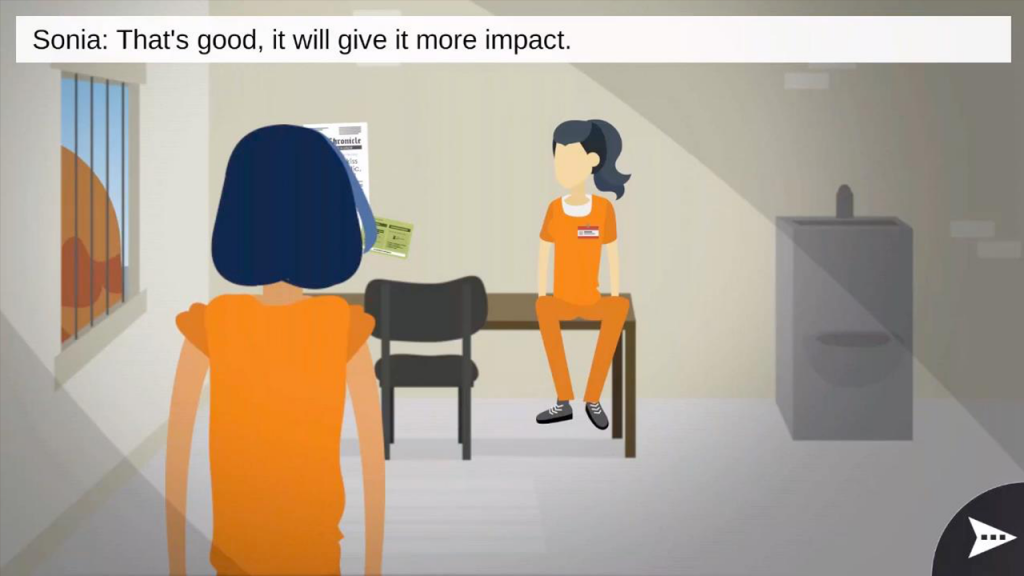
The last two situations I want to cover both dealt with Chloe being sexually assaulted.
The first scenario shows Chloe being taken advantage of while she was too drunk to provide consent. The boy she had started dating saw that she couldn’t speak up and took her into the bushes to have sex.
Later in her life, Chloe has an abusive husband who incorrectly claims marriage provides eternal consent. Neither of these scenarios are consensual but in both situations Chloe falls into a victim-blaming mindset. Victim blaming is very common in these situations with many abuse victims feeling they should not speak up or should stay with the partner who has sexually assaulted them.
Although these scenarios are difficult to stomach it’s important that people recognize that these nonconsensual acts are unfortunately common.
Getting Into a Better Place
The game does explain that what Chloe did with her student was wrong as well. It also shows that abuse by the men in her life eventually led her to take on her student as a partner continuing the chain of broken consent.
More than anything though, the game showed Chloe’s path to hope for a better future. It constantly pushed the point that while it’s hard to fight back in these situations, there are many laws in place that we can use to protect us against abusers.
The game wants you to know that you always have a right to push back against sexual assault and that while something as simple as a kiss may not be a big deal to others, what’s really important is how the situation makes you feel. Your body is your own – don’t let anyone take advantage of it or make you feel like should just go with the flow. There is always help available for you.
You are not alone.
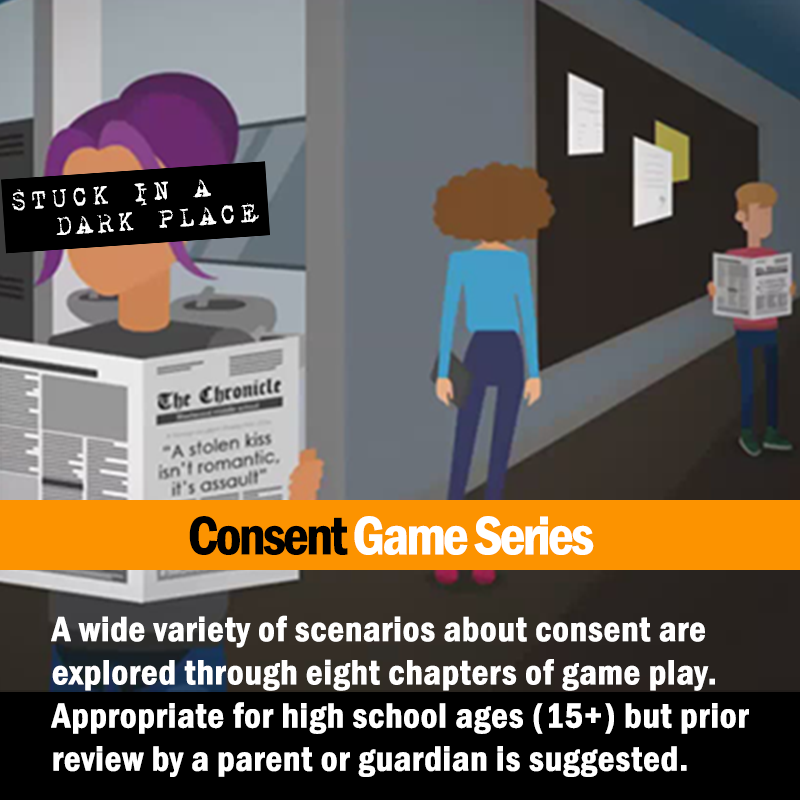
Support this work by donating online:
PayPal
Apple Pay
Gaming Against Violence is an award-winning program presented by Jennifer Ann's Group, a 501(c)(3) nonprofit charity [EIN: 20-4618499].
Play Stuck in a Dark Place, a serious game about consent
Developed by: Another Kind
Produced by: Jennifer Ann's Group
Price: Free
Language: English
Age Rating: Teen
More information about Stuck in a Dark Place
► Get Stuck in a Dark Place on the iTunes Store
► Play Stuck in a Dark Place in your browser
► Watch a video trailer about Stuck in a Dark Place

